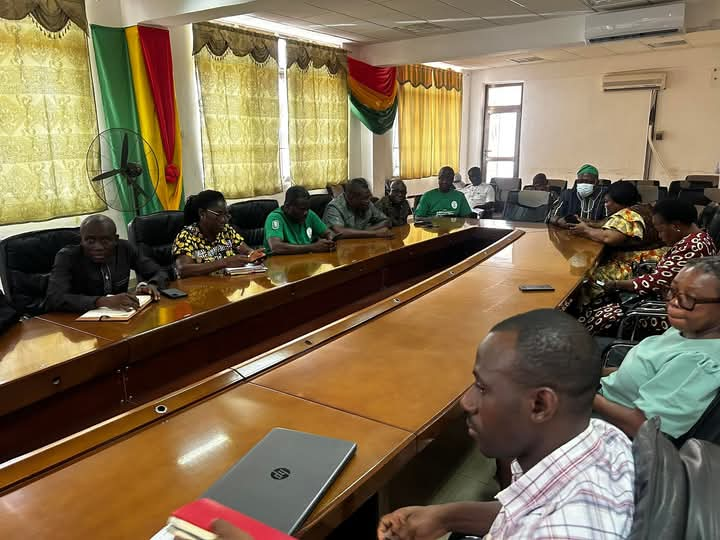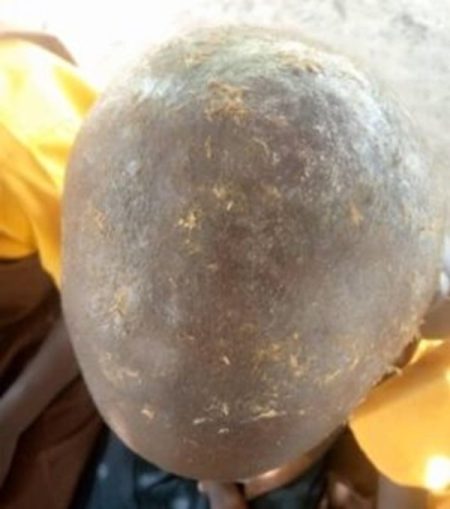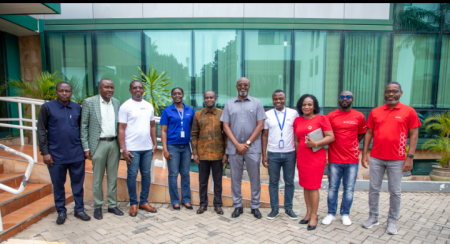Cerebrospinal Meningitis (CSM) Threat and Preparedness in Ghana’s Upper East Region
Professor Samuel Kaba Akoriyea, Director General of the Ghana Health Service (GHS), has emphasized the need for heightened vigilance and enhanced surveillance for Cerebrospinal Meningitis (CSM) in the Upper East Region of Ghana. While the meningitis situation appears to be under control nationally, Professor Akoriyea stressed that the threat remains, particularly given the region’s proximity to the meningitis belt in the Sahel region. This call for increased vigilance comes in the wake of a meningitis outbreak earlier in 2025 in the neighboring Upper West Region, where several lives were lost. Though the Upper East Region hasn’t experienced a full-blown outbreak, recorded cases and fatalities underscore the potential for rapid escalation if preventive measures are not rigorously implemented. The Director General’s visit to the Upper East Region served as a platform to reinforce the importance of proactive measures and collaboration among stakeholders in mitigating the risk of CSM.
Professor Akoriyea’s call to action centers around several key areas. Firstly, he urged intensified public awareness campaigns to educate residents about the signs, symptoms, and preventive measures related to CSM. Early detection and prompt treatment are crucial in containing the spread of the disease and minimizing its impact. He also emphasized the importance of robust surveillance, particularly at border entry points with neighboring countries in the Sahel region, a known meningitis hotspot. The movement of people across borders increases the risk of disease transmission, necessitating stringent monitoring and control measures to prevent the infiltration of CSM into the region. The GHS has assured the public of adequate vaccine supplies to manage any potential outbreaks.
A significant challenge highlighted by Professor Akoriyea is the reluctance of individuals experiencing CSM symptoms to seek timely medical attention. This hesitancy underscores the need for continued public health education to build trust in the healthcare system and encourage prompt treatment-seeking behavior. Coupled with this is the pressing issue of healthcare worker shortages in the Upper East Region. Professor Akoriyea attributed this shortage to security concerns, particularly in conflict-prone areas like Bawku, which deter healthcare professionals from accepting postings to the region.
The Director General’s concern regarding security challenges and their impact on healthcare delivery underscores the interconnectedness of peace, security, and public health. The prevailing insecurity in certain parts of the region creates a challenging environment for healthcare workers, potentially compromising the quality and accessibility of healthcare services. This situation highlights the necessity of addressing the root causes of insecurity to create a conducive environment for healthcare professionals to operate effectively and deliver essential services to the population.
Further exacerbating the healthcare worker shortage is the issue of interference in staff transfers by influential figures. This interference disrupts the equitable distribution of healthcare professionals across the region, leaving some areas underserved. Professor Akoriyea appealed for support in ensuring fair and transparent transfer processes to optimize the deployment of healthcare personnel based on the needs of the population. Addressing both the security concerns and the interference in staff transfers is crucial for strengthening the healthcare system in the Upper East Region and enhancing its capacity to respond effectively to public health challenges like CSM.
The Upper East Regional Coordinating Council, represented by the Acting Regional Coordinating Director, Al-Hassan Ibrahim Abdul-Kadir, acknowledged the concerns raised by Professor Akoriyea and pledged to address them in collaboration with the Regional Minister. This commitment to collaboration and problem-solving is a positive step towards improving the healthcare landscape in the region. Ongoing efforts in partnership with the Ghana Medical Association to enhance security for health workers are also encouraging. These collaborative initiatives, combined with heightened public awareness and robust surveillance measures, are essential for strengthening the region’s preparedness and response capacity in the face of potential CSM outbreaks. The continued focus on these critical areas will contribute to safeguarding public health and building a more resilient healthcare system in the Upper East Region.














